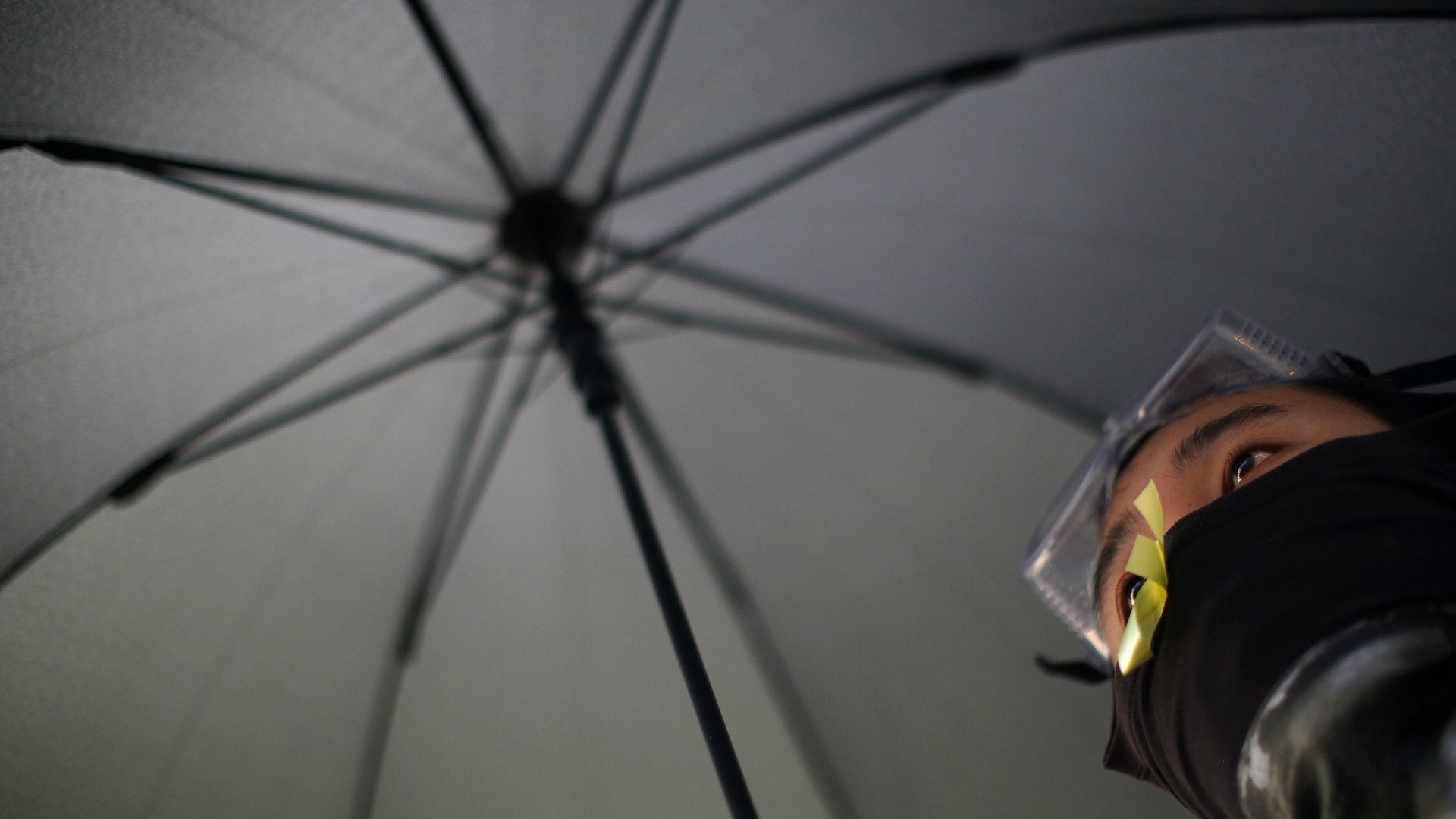Here’s China’s latest warning to Hong Kong’s Umbrella Revolution
An editorial published Wednesday in the People’s Daily, a mouthpiece for China’s Communist Party, told protesters in Hong Kong that they would face “unimaginable consequences” if their demonstrations continued. Quartz has translated that editorial and analyzed its implications.


An editorial published Wednesday in the People’s Daily, a mouthpiece for China’s Communist Party, told protesters in Hong Kong that they would face “unimaginable consequences” if their demonstrations continued. Quartz has translated that editorial and analyzed its implications.
Now a new opinion piece (link in Chinese), posted earlier today, shows that China is not done wagging a finger at the Umbrella Revolution. This time, it says that the protesters are “doomed to fail.”
Like the earlier message, the new piece criticizes protesters for “inciting illegal activity,” and challenging the authority of Beijing. It dismisses the protesters’ desire for universal suffrage and emphasizes adherence to the Aug 31 decision that only Communist Party-approved candidates will be allowed to run in Hong Kong’s 2017 elections.
Quartz has translated the full text of the latest editorial, included below.
* * *
Firmly uphold the National People’s Congress Standing Committee’s decision
For several days, many in Hong Kong have been striving for so-called “true universal suffrage,” all the while inciting illegal activity and causing trouble. Through street demonstrations, they have attempted to force the hand of central authorities to alter the decision of the Standing Committee of the National People’s Congress. Their approach openly violates Hong Kong Basic Law, the laws of Hong Kong itself, and the rule of law in general. It is doomed to fail.
The long-discussed election of the Hong Kong Special Administrative Region’s Chief Executive is of historic importance in the progress of Hong Kong’s democracy. Since the return to Chinese control in 1997, central authorities have supported Basic Law and continuously promoted the development of democracy in Hong Kong. At the end of 2007 the Standing Committee established a definitive timeline, deciding to allow general elections for Hong Kong’s chief executive by 2017. With this election in place, all members of the legislative council could be chosen through general elections. That is to say, the principle and system of general elections would be implemented well before the end of the 50-year period during which Hong Kong’s economy and legal system are to remain unchanged.
On August 31 of this year, the Standing Committee issued a decision clearly defining the principles and systems for the election of the Chief Executive. These amply demonstrate the unwavering and sincere commitment of central authorities to the implementation of general elections in Hong Kong.
This Standing Committee decision embodies the fundamental aims of “one country, two systems” and the provisions of the Basic Law. It has taken full consideration of all opinions related to the election of Hong Kong’s chief executive, and is consistent with the realities on the ground in Hong Kong. It is legal, fair, and reasonable. This decision will also clarify mistaken interpretations of Basic Law. By adhering to the provisions of Basic Law, and being built upon a common understanding of the law, it has contributed to the eventual realization of general elections in Hong Kong.
Today, some people ignore the “one country, two systems” policy and the existence of the Basic Law. They openly incite illegal protests, demand so-called “true universal suffrage,” and insist that their representatives—even if they have challenged central authorities—become candidates for chief executive of Hong Kong. Such demands are both unlawful and unreasonable.
Hong Kong is an administrative region of China, directly administered by the central authorities of the people’s government. It is neither a country nor an independent political entity. Seventeen years after the handover of Hong Kong to China, some still lack a full understanding of “one country, two systems.” They do not comply with the Basic Law of Hong Kong, and disapprove of the central authorities’ governance.
If we let this minority drive public opinion, “one country, two systems” will not be carried out properly. This would harm Hong Kong’s long-term prosperity and stability, as well as the prospect for the smooth implementation of general elections. From a legal perspective, if election of the chief executive has not yet obtained approval from the legislative council, only the current system of selecting for that position will be applicable. On matters of such importance there is no room for debate.
The illegal demands and political slogans put forward by a small group in Hong Kong show that they disregard the rule of law and use illegal means to disrupt social order. The goal of so-called “true universal suffrage” is a challenge both to the country’s highest authorities and to the democratic rights of the people of Hong Kong. In the end the only thing it will harm is these people’s desire for such democratic rights. These illegal efforts do not have popular support, and in the end they will fail.
We must look further down the road. The path toward universal suffrage begins with the Basic Law of Hong Kong and the decision of the Standing Committee of the National People’s Congress. This is the correct and only direct path. The legal authority of the Standing Committee cannot be challenged. Supporting its decision is the inevitable choice. Indeed, it is the only choice.